
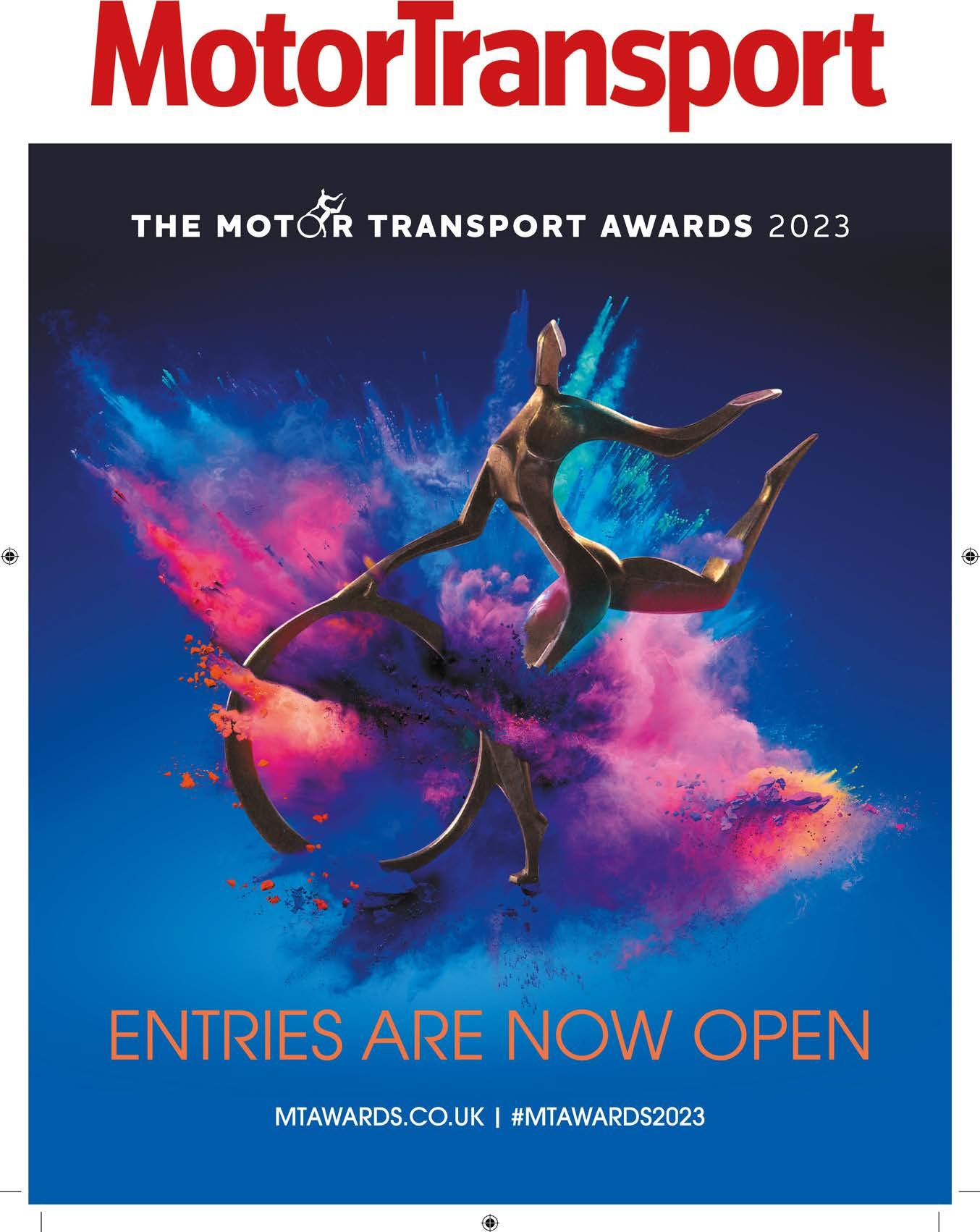
Sharp■Informed■Challenging 16.1.23














IN IT TO WIN IT: Entries are now open for the Motor Transport Awards 2023. You’ve got until March 31 to apply, with the winners revealed at the Grosvenor House Hotel on September 6.

To keep the awards relevant to today’s road freight transport industry we have changed two categories. Apprenticeship of the Year becomes the New Talent Development Award, which will be presented to the fleet operator who has worked hardest to develop a pipeline of new recruits to meet its needs for the drivers, warehouse staff and managers of the future. Meanwhile, the Clean Fleet Van Operator of the Year has been replaced with the Sustainable Transport Award, which is open to all operators. This award will focus on the environmental, social and governance (ESG) policies.
And don’t forget, the awards are open to own-account and third-party operators of 11 or more commercial vehicles.
Fledgling haulier fails as cashflow woes bite
By Chris Tindall
An East Yorkshire haulage firm that operated 18 lorries has collapsed into administration a yearand-a-half after it was founded.
Interpath Advisory in Leeds was appointed to handle the affairs of Sam Carmichael Logistics on 3 January after the company experienced “cashflow difficulties”.
The company had traded out of an operating centre on the Melton Enterprise Park in North Ferriby since April 2021 and held a licence for 18 HGVs and 21 trailers.
Interpath said the company provided warehouse and distribution services across the UK.

The company, which held a licence in the name of Carmichael International, was first granted authorisation for six lorries and nine trailers in September 2021

before it successfully applied to increase its authorisation in January last year.
However, the licence was then revoked by the traffic commissioner in November 2022.
Interpath told MT that the operator experienced cashflow difficulties “as a result of temporary disruption at one of its principal customers. After assessing their options, the directors took the difficult decision to seek the appointment of administrators.”
The majority of the firm’s 21 employees were made redundant before administration and three more lost their jobs following Interpath’s appointment.
James Clark, Interpath Advisory MD and joint administrator, said: “We will commence an orderly wind down of the business.”
Sharp ■ Informed ■ Challenging 16.1.23 DB Schenker p4 DFDS p6 Dobbs Logistics p4 EFS Global����������������������������������������������������� p4 Eminence Transport / Floryn p4 Esken Renewables p8 Fagan & Whalley p3 Howdens p6 International Road Ferry p3 Greenergy Flexigrid p8 James Kemball p8 McBurney Transport p6 Mick George Group p8 Wincanton p8 Xpediator ������������������������������������������������������ p6 OPERATORS INSIDE Close to home Last-mile boost for Pall-Ex p3 Going for growth Palletforce grabs Dodds p4 Swift action Licence loophole to close p6 NEWS INSIDE Focus: apprenticeships p10 Viewpoint: sleep apnoea p12 What’s new for 2023?: vehicle innovation p14 MT Awards winners p18-27
Sam Carmichael Logistics forced into administration by ‘temporary disruption’ at main customer


Pall-Ex to roll out last-mile delivery
 By Carol Millett
By Carol Millett
Pall-Ex Group is planning to roll out a last-mile delivery scheme across multiple cities after its launch in London delivered service levels above 96.5% and boosted members’ annual revenues by an average of over 29%.
The London Project was developed by Pall-Ex in collaboration with 13 of its members to tackle the cost and difficulties of delivering into London.
The scheme identified and mapped 13 territories, using depot location, vehicle management, and freight volume data, and alloted them to 13 members. Each member has exclusive access to the commercial opportunities within the allotted patch to ensure maximum profitability via
improved load and route planning.
The 13 members also enjoy several benefits, including the elimination of multi-network subcontractors, increased market input, exclusive member agreements, increased delivery capacity and improved profit.
Pall-Ex also introduced new and
more favourable Inter-Member Rates (IMR) under the scheme.
To remain in the London Project and take advantage of its additional benefits, members are required to maintain above 95% service levels in their designated zone at all times and to work exclusively for Pall-Ex and Fortec.
Call of the wild is job’s biggest lure, say drivers
It might rarely feel like it these days, but freedom of the open road was the reason given by many lorry drivers for liking their job the most.
According to a survey conducted among 330 drivers, nearly half (43%) gave that response, with 22% saying it was the pride they felt in delivering a vital service that got them behind the wheel each morning.
Bringing things back down to earth with a bump, a third of drivers said their least favourite aspect of their job was the lack of decent roadside facilities.
A lack of respect came second on the list of dislikes.
Driver Hire, which conducted the survey, also asked what drivers had initially wanted to do when they left school – and found over a fifth (22%) were doing their dream job, although one respondent said he had wanted to be a pirate and another “a coffin lid polisher”.
Engineer shortage the new challenge, sector warned
Rising competition for vehicle engineers and technicians is the new recruitment challenge for the haulage industry, Fagan & Whalley (F&W) has warned.
turnover to £30.9m (2021: £26.6m) in the year to 30 April 2022, its pretax profit had fallen to £467,664 (2021: £1.5m).
Co-op
Co-op’s bid to provide sustainable methods of delivery using autonomous robots has reached Leeds, with 20,000 residents able to make use of the novel service.
Following a roll-out in Bedford last year, the food store group has once again teamed up with Starship Technologies, as well as Leeds City Council, to offer autonomous grocery deliveries within the Adel and Tinshill areas of the city.

Orders are made through the Starship food delivery app before being delivered by robots within the community. Residents can schedule their delivery and then drop a pin where they want their groceries sent.
The expansion in the north of England follows their introduction in Milton Keynes, Bedford, Northampton and Cambridge.
The warehousing and distribution company has tackled the problem by hiking wage rates for its engineers and technicians and by ensuring its workshops offer good quality, heated facilities to attract and retain staff.
Business and strategy director Sam Fagan said that while the company had seen a 16% rise in
Fagan said the slump in pre-tax profit had to be seen in the context of two “exceptional years’ performance” during the Covid-19 pandemic lockdown. Other key factors included the driver shortage crisis and the cost and operational challenge of launching the company’s 212,000sq ft warehouse and distribution centre in Blackburn, which opened in February 2021.
Culina buys International Road Ferry
Culina has bought unaccompanied transport specialist International Road Ferry (IRF) for an undisclosed sum.
IRF has offices in Felixstowe, Thetford, Rotterdam and Grubbenvorst near Venlo in the Netherlands. It has more than 25 years of experience in unaccompanied transport of both full and part loads between the UK, Germany, Switzerland and the Netherlands.
IRF will sit within the group’s Stobart Intermodal operation headed up by MD Arthur Koutstaal.
motortransport.co.uk News MotorTransport 3 16.1.23
Group will develop scheme in multiple UK cities after London success
sends robot army into Leeds
EV Cargo buys Hastings firm in further move to boost pallet network
Palletforce nabs Dobbs Logistics
By Carol Millett
Palletforce has bought Hastingsbased Dobbs Logistics for an undisclosed sum.
The family firm, which was founded in 1961, provides pallet distribution, general haulage, project cargo and warehousing services to its customers. It has operating licences for 22 trucks and 18 trailers.
Announcing the deal
Palletforce’s parent company, EV Cargo, described Dobbs Logistics as “the stand-out pallet network member and road freight operator in a region that is historically challenging for pallet networks”.
It added: “As a result, the acquisition further strengthens the Palletforce network, providing members with a stable and trusted service partner in a key location.”
Directors Stephen Morgan,
Kevin Manser and Lynton Manser and their management team will continue to lead the business, postacquisition.
EV Cargo said the acquisition is a further demonstration of its commitment to developing Palletforce, strengthening its service and securing “unrivalled quality and delivery performance” across its postcodes.
Dobbs Logistics is EV Cargo’s
DB Schenker sale moves step closer
Deutsche Bahn AG has moved one step closer to selling DB Schenker, opening the door to a possible bid by DSV Panalpina, which announced in 2021 that it is interested in acquiring the business.
The German rail group said that it has instructed its management board to examine and prepare the case for a potential sale of up to 100% of its shares in DB Schenker.
DB Schenker employs around 76,100 staff across 1,850 locations in more than 130 countries, including the UK. The group is the logistics arm of Deutsche Bahn and operates land, air and ocean transport services, offering logistics and global supply chain management from a single source.
EFS Global continues buying spree
EFS Global finished last year the way it began by buying another two haulage companies: sister firms Eminence Transport and Floryn.
Both are based in Maidstone, Kent and provide pallet network, general haulage, warehousing and fulfilment services.
The value of the deal was not disclosed but EFS said the fulfilment service was a key addition and something it hoped to build on in the future.
The purchase of the two hauliers follows several other acquisitions made by EFS in 2022, including Tom Moorhouse & Son, Andante Freight and Pegasus Express.

At the beginning of last year the group announced it had acquired Wakefield-based Gees Haulage and Tyneside Express Transport in Gateshead.
EFS said the spending spree took the group to a £165m turnover and a 26% increase in net profitability.
third purchase in the last 10 months, and follows the acquisition of Fast Forward Freight in the Netherlands and Air Express Cargo in Spain.
EV Cargo said it is on track to deliver more than $3bn (£2.51bn) of revenue by 2025.
Contract woes did for Solihull haulier

Collapsed haulage firm Corporate Solutions (Logistics) was running at an almost £700,000 pre-tax loss six months before it entered administration.
The Solihull-based firm closed last October after suffering increasing fuel and driver costs, with the implementation of IR35 rules compounding its problems according to administrators FRP.
In a report to creditors, FRP said an attempt to absorb these increases led to “creditor stretch”, including with HMRC. The haulier lost a contract with Smurfit Kappa, as well as others in August 2021, resulting in an estimated loss of £10m per annum and £1m of gross profit.
In June 2022 it lost a contract with Aldi following a re-tender process and aspects of its work with Coca-Cola fell by the wayside when the drinks giant opted to use rail for its northbound freight.
Tevva set for mass production of 7.5-tonne electric truck
Tevva has secured European Community Whole Vehicle Type Approval (ECWVTA) for its 7.5-tonne battery electric truck.
The certification means it can now start producing and selling in volume across the UK and Europe. Tevva is the first UK company to receive ECWVTA for a 7.5-tonne electric truck and mass-produced versions are being delivered
to customers, including Expect Distribution, Travis Perkins and Royal Mail.
The company expects to sell up to 1,000 electric trucks in 2023.
Tevva founder and chief executive Asher Bennett said: “We continue to ‘charge on’ as a company and reach new milestones, with type approval being the latest and most important
landmark we’ve achieved to date.”
The truck offers up to 140 miles (227km) from its 105 kWh battery on a single charge, and is said to be ideal for last-mile and urban delivery fleets. It will be followed this year by a 7.5-tonne hydrogen-electric truck, which benefits from a range extender that enhances vehicle range to up to 354 miles (570km).
motortransport.co.uk News 4 MotorTransport 16.1.23
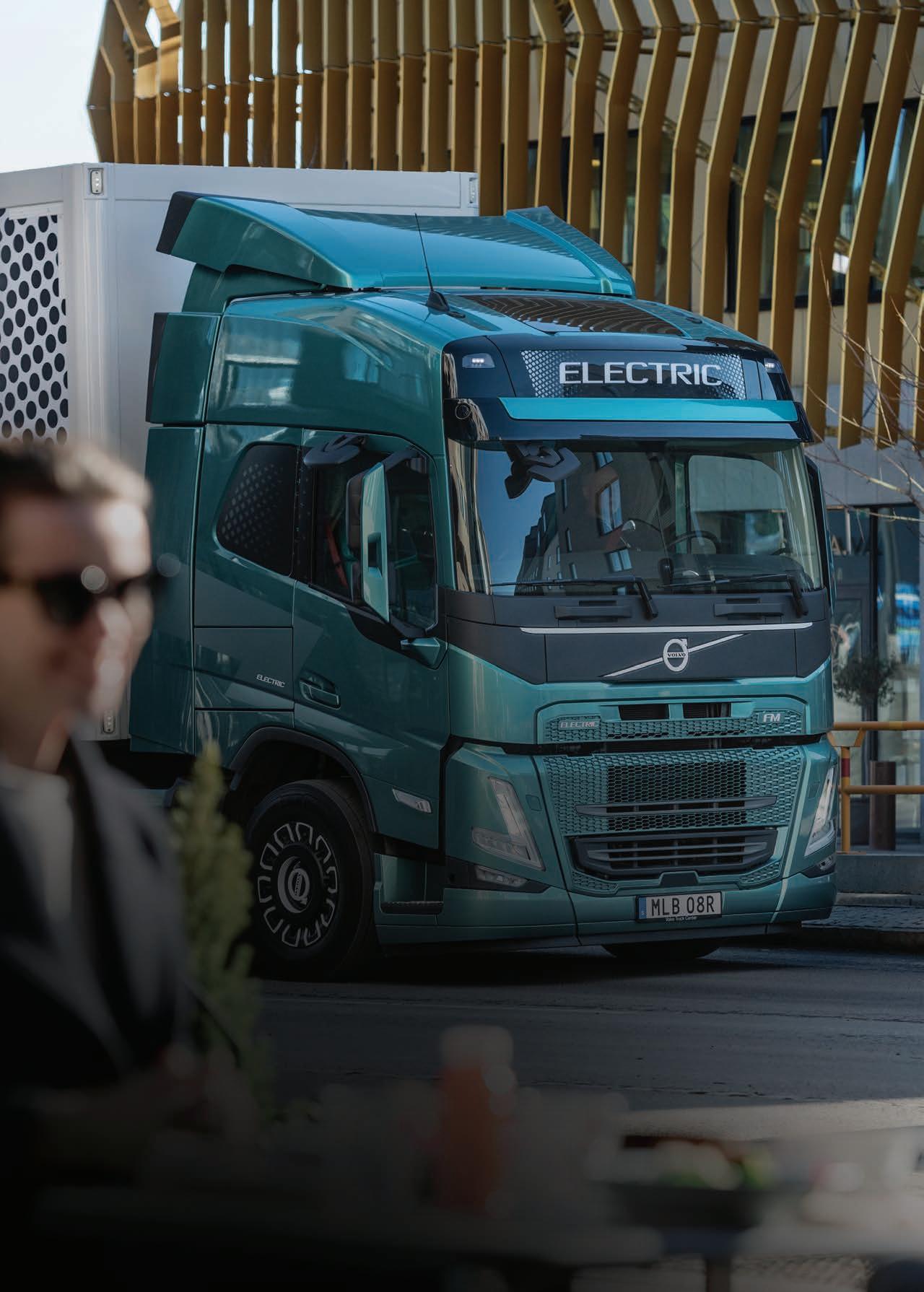

Xpediator mulls bid from founder
Xpediator’s management looks set to accept a bid from a consortium led by the company’s founder Stephen Blyth, who resigned last year.
The company said that it was “minded” to recommend the cash offer – for an undisclosed sum – to its shareholders.
The consortium led by Blyth also includes Justas Versnickas, MD and 20% shareholder in Xpediator’s Delamode Baltics, which is part of Xpediator’s road freight subsidiary Delamode Logistics International.
The bid also has the backing of private equity firm Baltcap and the support of Xpediator’s two largest independent shareholders, Shaun Godfrey and Sandu Grigore. AIM-listed Xpediator recorded a pre-tax profit of £9.1m in its results to 31 December 2021.
Hauliers will be prevented from swapping vehicles on and off O-licence
Action on way for licensing loophole
By Chris Tindall
The senior traffic commissioner is consulting on plans to amend statutory guidance, closing a loophole that enables hauliers to ‘draw down’ HGVs not specified on an operator licence.

The move was prompted by a recent decision in the upper tribunal concerning a company swapping vehicles on and off its licence.

The tribunal found that Connor Construction “was routinely and as a business practice using more vehicles in the operation of its busi-
McBurney reported revenues of £115.4m (2020: £104m) whilst pre-tax profit rose to £11.5m (£9m). DFDS said McBurney’s revenues are set to increase by almost a third this year. It added: “The acquisition is aligned with DFDS’ strategic focus on cold chain logistics, it overlaps with existing activities in the region, and offers opportunities to connect with other parts of DFDS’ pan-European transport network.”
ness than it was seemingly authorised to do under the licence, but was using the VOL system to swap vehicles on and off the licence”.
The upper tribunal ruled that this ran counter to core principles of the legislation, such as the requirement for finance and for maintenance and for a sufficient operating centre.
As a result, STC Richard Turfitt has amended statutory guidance to reflect the tribunal’s concerns: “The number of vehicles applied for should include the number required for use as well as any extra to cover an increase in business or emergencies such as breakdowns,” said the draft amendment.
Howdens gets drivers ‘fit’ with innovative eye and brain training
Kitchen and joinery products supply giant Howdens is trialling an innovative driver training tool –EyeGym – in a bid to improve driver performance and safety.
The online visual, cognitive and decision-making training has been endorsed by many top sports people as well as a number of insurance companies.
Gareth Sterland, head of transport at Howden Joinery, plans to introduce EyeGym for all his 290 long-distance truck drivers in the UK, Ireland, and France in 2023, starting with 120 drivers at Howden’s large DCs including its national centre at Raunds plus another 170 based at 3PL sites.
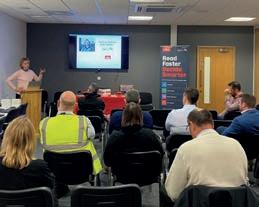
The software provides visual, brain and decision-making training designed to improve concen-
tration, response times, co-ordination, peripheral awareness, scanning, and judgement.
The driver will get an accuracy score as well as how quickly they can decide based on what they see.
Howdens currently has 92 users signed up for EyeGym and the minimum training plan for the drivers is 30 minutes every 40 days as part of their working day.
Amazon warehouse staff deliver date for first-ever strike
Amazon workers in a Coventry warehouse have announced an initial strike date.
The first-ever Amazon strike in the UK is set to take place on 25 January, with further dates to be announced in the coming weeks.
Hundreds of Amazon workers at the fulfilment centre have voted to walk out in anger over the company’s 50p per hour pay offer.
The ballot, which closed on 16 December 2022, saw a majority of more than 98% of workers vote to strike.
An Amazon spokesperson said: “We’re proud to offer competitive pay, which starts at a minimum of between £10.50 and £11.45 per hour depending on location.
“This represents a 29% increase in the mini-
mum hourly wage paid to Amazon employees since 2018.”
n Amazon has also announced plans to shut three warehouses at Hemel Hempstead, Doncaster and Gourock, in the west of Scotland, putting 1,200 jobs at risk. The company said it is planning to open two new centres creating 2,500 jobs over the next three years.
motortransport.co.uk News 6 MotorTransport 16.1.23
CHILLING AMBITION: DFDS has agreed to buy Northern Ireland logistics group McBurney Transport for £138m as part of plans to accelerate its drive into the cold chain logistics sector. McBurney Transport, which has its headquarters in Ballymena in Northern Ireland, specialises in warehousing and transporting cold chain and dry goods between Ireland and the UK for food manufacturers and retailers. The group, which was founded by Norman McBurney in 1965, transports more than 100,000 trailers across the Irish Sea annually. It employs more than 800 staff and operates around 400 trucks and 1,360 trailers, of which 955 are refrigerated. In 2021,
Photo: Shutterstock
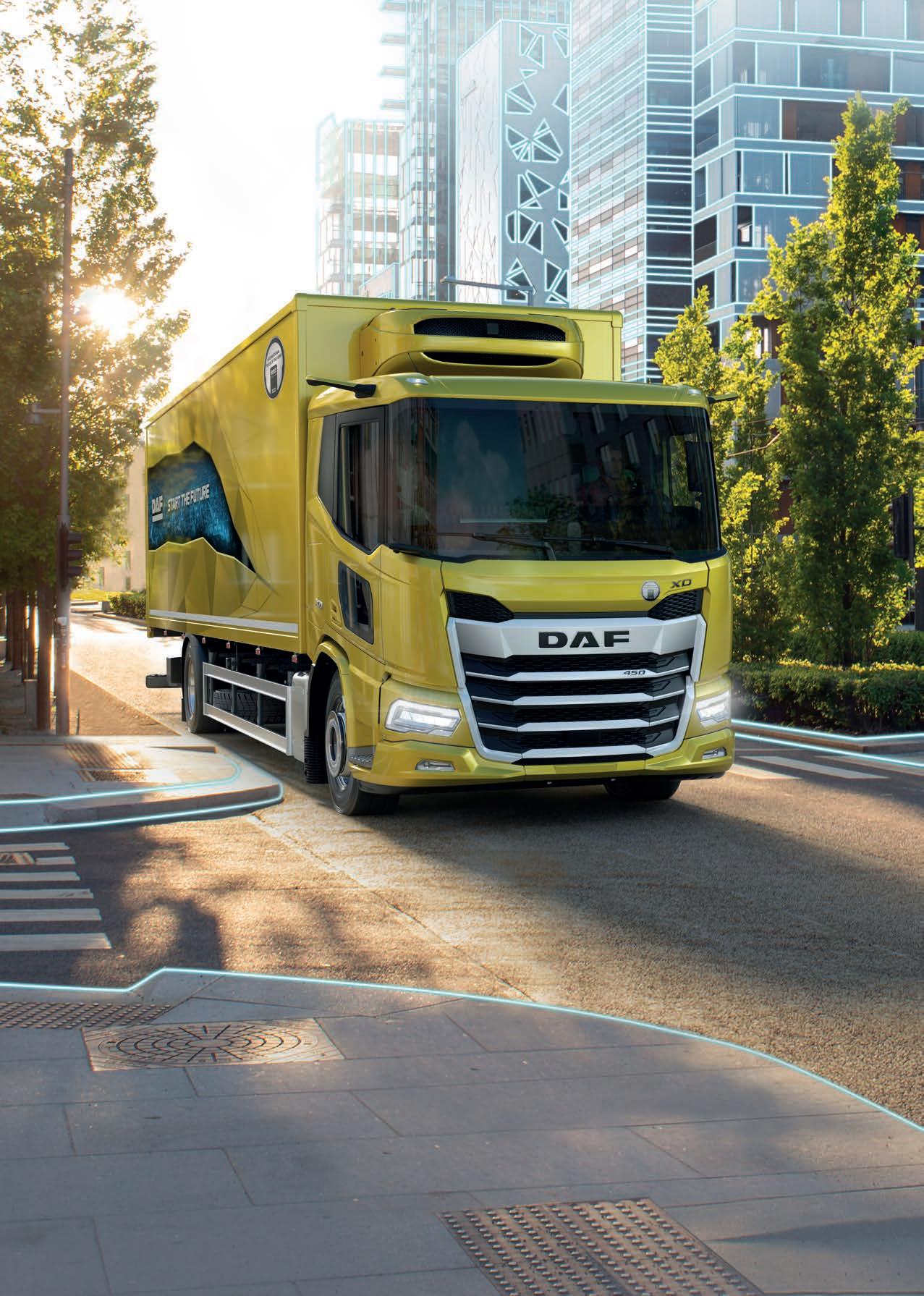



James Kemball sees 2021 revenue leap seven fold
Container haulier James Kemball saw income rocket from a £1m loss in 2020 to a £42m pre-tax profit in 2021, aided by a big increase in container movements and the expansion of its off-dock storage solutions.

The Felixstowe-based firm has depots across the UK, including at Felixstowe, Southampton and Tilbury ports, and operates a fleet of over 300 trucks and 400 trailers.
In its recently published financial results, the
company revealed soaring revenue, up from £18m in the 15 months to 30 June 2020 to £127m in the 18-month period to 31 December 2021, taking it from a loss of £1m to a pre-tax profit of £42m.
In its strategic report, the company attributed its turnaround to being well prepared and recognised for providing “exceptional and unique solutions” to the challenges arising from the supply chain disruption created by the Covid-19 pandemic and Brexit.
Strike threat that would have hit forecourts delivers rises of up to 37%
Bumper pay award for Wincanton fuel drivers
 By Carol Millett
By Carol Millett
Wincanton has agreed to give 150 tanker drivers pay increases ranging between 20% and 37% after facing the threat of strike action that could have brought major disruption to UK fuel supplies.
The deal comes after the drivers, who deliver fuel to Valero petrol stations, voted “overwhelmingly” in favour of industrial action, with strike dates set, according to the union Unite.
Valero Energy markets fuel in the UK and Ireland under the Texaco brand. There are around 800 Texaco-branded service stations in the UK.
The eleventh-hour negotitiations saw a pay settlement agreed, which will see tier one workers on
the Valero contract receive a pay increase of 20.7%, while those on tier two contracts will see their pay rates increase by 37.1%.

Unite said the pay deal was designed to reduce the pay differ-
ential between the two groups of workers.
A Wincanton spokesperson said: “We are pleased to have reached a positive outcome that satisfies all parties.”
Octopus Hydrogen signs delivery deal
Octopus Hydrogen has sealed a logistics partnership deal with Greenergy Flexigrid for the collection and delivery of green hydrogen to customers.
Mobile refuelling units will be transported by Greenergy to enable delivery, storage and dispensing of green hydrogen on customer sites. The first delivery was completed last month.
Octopus Hydrogen aims to tackle sectors that cannot be decarbonised easily through electrification, including heavy goods transportation.
Will Rowe, founder and chief executive of Octopus Hydrogen, said: “We want to support our customers to achieve their decarbonisation strategies. It’s great to be working with Greenergy on providing this essential service. Together we’re making green hydrogen happen today.”
Hanson UK targets emissions in swoop for Mick George Group
Hanson UK is set to buy construction haulier Mick George Group.
ROLL WITH IT:
has switched more than three-quarters of
to
X Multi and X Works tyres in a bid to reduce fuel costs
it had moved at least 75% of its 123 trucks and 150 trailers to Michelin tyres since it rekindled its partnership with the business last year. Located at 13 depots across the UK, the fleet includes 150 specialist moving floor trailers designed for transporting biomass fuel, each of which clocks up to 100,000 km a year. The tyre switch decision arose from Esken’s ESG strategy and a commitment to protect the environment.

The Mick George Group, which operates from East Anglia and the East Midlands, specialises in bulk excavation and earthmoving, demolition, environmentally sensitive waste removal and waste management services, as well as aggregates and concrete supply.
The group employs around 1,000 staff and operates four recycling facilities, eight waste transfer stations, 11 aggregates quarries and 10 concrete plants.
In its latest results, to 30 September 2021, Mick George
Group reported turnover of £193.6m and a pre-tax profit of £13m.
Hanson UK said the acquisition will “significantly strengthen” its circular materials offering while complementing its aggregates and ready-mixed concrete businesses.
motortransport.co.uk News 8 MotorTransport 16.1.23
Biomass fuel supplier Esken Renewables
its fleet over
Michelin
and downtime.The Widnes company said


Focus: apprenticeships
Flexible funding needed
‘The Apprenticeship Levy is just another tax we have to pay.’ How many times have you heard that said by logistics companies?
From 1 April 2017 to 30 June 2022 the logistics sector contributed £825m in levy payments. During this period there were 36,360 apprenticeship starts in England across the sector and, looking at the funding bands applicable for each apprenticeship, the total possible recovery by the sector could not have been more than £250m.
It is fair to acknowledge that some employers are using other non-logistics apprenticeships, such as general management or LGV mechanics, to recover some of the levy they are paying. However, there will also be a significant shortfall in recovered funding for those apprentices who do not complete their programme. The current drop out rate for all apprenticeships is 35%.
The number of apprenticeships and apprentice starts by sub-sector since April 2017 makes interesting reading (see table below).
Within the supply chain subsector, 9,312 starts were warehouse operative apprenticeships. This indicates that, contrary to popular belief, the activity of road freight transport and warehousing is the largest user of the apprenticeship scheme.

But the industry is obviously paying a considerable amount of levy that it is not recovering for the training of its staff.
The argument for change
This is the reasoning behind both Logistics UK and the RHA arguing for a skills or training levy rather than one purely for apprenticeships. The minimum period allowed for an apprenticeship is 12
APPRENTICESHIPS
months, but many operators and training providers would say that it does not take that long to train a warehouse person or LGV driver.
One could argue this opinion has been endorsed by the Department for Education (DfE) with the introduction of its 16-week LGV Driver Bootcamp training course.
However, I believe most employers and training providers would agree that someone completing the full 12-month curriculum will be a more skillful and knowledgeable employee.
With the perpetual skills shortage faced by the industry we need to continue to lobby for that funding to be available for employers to use in more flexible ways.
Route review
All apprenticeships in England are accredited and administered by the Institute for Apprenticeships and Technical Education, a body within the DfE.
In September 2022, the Institute launched a route review
of the transport and logistics sector. Its aim is to provide an opportunity to listen to employers, providers and other stakeholders to ensure they can obtain the technical qualifications and apprenticeships they need now and in the future.
It has consulted through an online questionnaire and a webinar.
The Trailblazer Group for Transport and Logistics met to discuss and confirm a response to the route review.
The group’s main topics raised are as follows:
■ Existing apprenticeships – revisions to eliminate anomalies in warehouse operative and supply chain operator;
■ Potential new apprenticeships such as fleet engineer and warehouse manager;
■ Apprenticeship Levy – expanding its use;
■ Education and Skills Funding Agency funding rules – prohibitive to LGV driving apprenticeships;
■ Job roles and titles – not always industry recognisable;
■ Bureaucracy – times and processes for revising existing apprenticeships and introducing new ones.
I fully intend to keep you updated on the progress we make over the forthcoming weeks.
Anyone interested in finding out more about the Trailblazer Group and transport and logistics apprenticeships is welcome to email me at trailblazergroup@mail.com.
■ Jim French MBE, co-chair Trailblazer Group, Transport and Logistics

motortransport.co.uk
10 MotorTransport 16.1.23
What changes can be implemented to make the Apprenticeship Levy work better for logistics firms?
SUB-SECTOR Sub-sector Accredited Apprentices apprenticeships Air 9 1,724 Maritime 10 1,654 Road freight 6 11,154 Road passenger 3 6,209 Rail 2 3,744 Supply chain 6 11,628 Waste 1 237
BY
TIME FOR CHANGE: Jim French is lobbying for Apprenticeship Levy funding to be used more flexibly



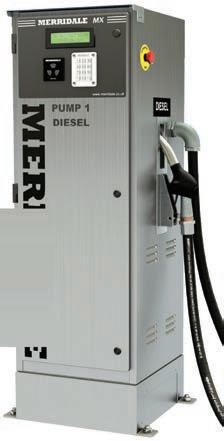







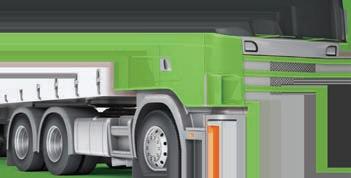



The writing is on the wall
Welcome to 2023! No doubt, like me, you are wondering what on earth this year can throw at the transport industry. Brexit, Covid-19 and Russia’s invasion of Ukraine all seemed unthinkable at the time, so maybe there is no point speculating.
Steve Hobson Editor Motor Transport
But portents of what is to come can be found in the Book of Revelation, which describes the Four Horsemen of the Apocalypse – Death, Famine, War and Conquest.
Leaving aside Conquest, as the Ukrainians are putting up a pretty good fight against the Russians, we have unquestionably seen plenty of War and Death there in recent months.
But it is certain that we haven’t seen the last of Famine. Millions of people around the world are already hungry as a result of conflict and climate change-induced crop failures, but we ain’t seen nuthin’ yet.
The slow progress towards reducing carbon emissions, despite the endless series of COPs that seem to produce little more than talk and targets, means that the planet is on course to warm by more than 2C. This, we are told, is where climate change will become catastrophic for many in the developing world, with floods and droughts leading to mass starvation.
This, in turn, will lead to a mass migration of populations from southern Africa towards Europe, which will make the tens of thousands of people crossing the Channel every year pale into insignificance. We may laugh at Trump’s wall on the Mexican border, but sometimes in madness there is a grain of truth.
Read the 1973 book ‘The Camp of Saints’ by French author Jean Raspail for a truly frightening vision of what could come to pass unless the industrialised nations start to take decarbonisation seriously.
Wake up to sleep apnoea
Obstructive sleep apnoea (OSA) is a rarely discussed condition, that if better identified and treated could prevent up to 40,000 road accidents every year. With 1.5 million people in the UK already known to suffer from OSA, it’s worth paying it due attention.
John Davies Regional distribution manager, Air Products





OSA sufferers’ breathing stops and starts while they sleep. This can happen several times every hour and multiple times a night. While this sounds shocking, those with the condition are generally unaware it is happening, although they are likely to experience extreme tiredness, issues concentrating, mood swings and headaches as a result.
OSA is particularly dangerous for lone workers such as drivers. This is partly because drivers are, of course, required to be fully alert, and partly because the sedentary nature of the job puts the driving community at greater risk of suffering from the condition in the first place.
Typically, OSA affects people that are older and/or overweight, have thicker necks, and drink and smoke, but it can also be linked to family history and wider medical conditions, so you can’t assess likelihood purely from appearance.
Despite the very real risks to the driving community, you’re unlikely to hear much discussion of OSA. Drivers understandably worry about the implications of confessing to feelings of extreme tiredness –specifically, having their licence (and therefore their livelihood) suspended or even revoked.
Aware of this, and as part of our wider commitment to being the world’s safest industrial gas company, here at Air
Products we have recently started a voluntary sleep apnoea programme for any of our drivers that may have concerns about excessive feelings of tiredness, or inability to concentrate. Our goal is to create an open environment in which drivers feel able to talk about these concerns, with confidence that they will be met with help and support rather than retribution.
I’m delighted to say that we now have our first driver, Kevin Bird, going through this treatment programme – an experience which he has described as “life-changing”.
Kevin had been feeling tired constantly and had taken the decision, after a chat with his GP, to raise the issue with the team here at Air Products. He was nervous about what might happen, but in fact he has been quickly assessed and diagnosed and is now undergoing treatment using a CPAP machine, which pumps air into a mask he wears when sleeping.
Kevin is not overweight and he exercises regularly, but prior to treatment, his breathing stopped while sleeping 11 or 12 times an hour. Now it is down to once an hour. As a result of his treatment, he is less tired, far more alert and has been able to successfully carry on his driving profession.
When it comes to the safety of our drivers, and the millions of people that join them on the roads every day, that can only be a positive thing. In fact, I’d go so far as to say, it will save lives.
Got something to say?
If you would like to contribute to MT’s Viewpoint, email steve.hobson@roadtransport.com
The newspaper for transport operators
To contact us: Tel: 020 8912 +4 digits or email: name.surname@roadtransport.com
Editor Steve Hobson 2161
Head of content Tim Wallace 2158
Events and projects editor Hayley Tayler 2165
Group production manager Isabel Burton Senior display sales executive Barnaby Goodman-Smith 2128
Event sales Tim George 0755 7677758
Classified and recruitment advertising rtmclassified@roadtransport.com
Sales director Emma Rowland 07780 604075
Divisional director Vic Bunby 2121
MT Awards Katy Moyle 2152 Managing director Andy Salter 2171
Editorial office Road Transport Media, First Floor, Chancery House, St Nicholas Way, Sutton, Surrey SM1 1JB 020 8912 2170
Free copies MT is available free to specified licensed operators under the publisher’s terms of control. For details, email mtsccqueries@roadtransport.com, or call 01772 426705
Subscriptions
RoadTransport@abacusemedia.zendesk.com 020 8955 7034


Motor Transport Subscriptions, Abacus, 107-111 Fleet Street, London EC4A 2AB
Rates UK £156/year. Cheques made payable to Motor Transport. Apply online at mtssubs.com
Registered at the Post Office as a newspaper
Published by DVV Media International Ltd © 2023 DVV Media International Ltd
ISSN 0027-206 X
motortransport.co.uk Viewpoint 12 MotorTransport 16.1.23



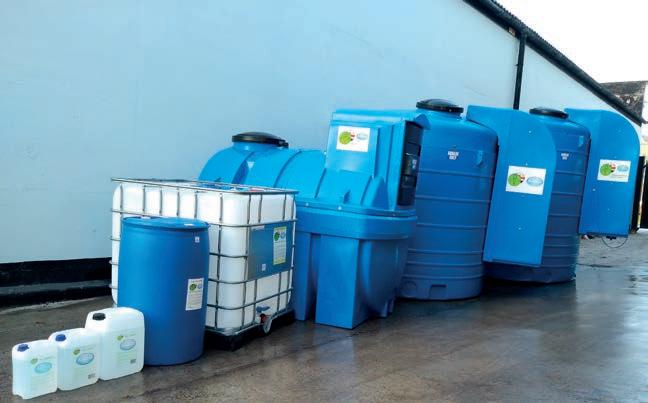












What’s coming up?
As the sector looks to haul itself out of a difficult period, we round up the most interesting vehicles expected on the market this year – and, unsurprisingly, new electric offerings are leading the charge. Colin Barnett reports
Ahappy new year, and welcome to 2023. The song says “Things can only get better”, but don’t count on it. While we can’t bring you guaranteed hope of all the world’s ills suddenly getting fixed, we can bring a short preview of what buyers of new trucks can expect in 2023.
Unfortunately, long lead times and increased prices look inevitable, but there are plenty of new products on the way. The theme running throughout the year is electrification, as manufacturers rise to the challenge of reducing tailpipe emissions. Whether the world is ready for all of them, in terms of infrastructure, is a separate story.
Euro-7 is coming
More electrification for the 1% doesn’t mean the 99% of operators still running on diesel are being ignored. Development is continuing to make internal combustion engines even more clean and fuel-efficient, ahead of hopefully discovering by the end of the year what Euro-7 will bring.
Here then is our headline guide to what will be arriving in 2023. Some of the content will be familiar to MT readers, having been revealed in the latter part of 2022, but with customer deliveries beginning in 2023.
We had intended to start off with a mention of the UK-built large electric van from Arrival, but recent

announcements that the company now intends to focus on the US market, together with laying off significant numbers of its British workforce, means this is likely to be a non-arrival here, certainly in the foreseeable future.
1. DAF
So, that means we begin with DAF. Although some early examples of the new XD range, the International Truck of the Year, have landed, customer deliveries will begin in earnest from now on. From March onwards, the first XDC and XFC models should begin to arrive in the hands of operators in the construction and vocational sectors, subject to bodybuilder availability. Double-drive and 4-axle versions of the XF, XG and XG+ should also begin to arrive around the same time.
Electrically speaking, the Electric XD goes into production in the summer, followed by the Electric XF a few months later, and UK operators will be among the first to get delivery.
2. Daimler
From the Daimler camp, the third-generation of the ubiquitous OM471 engines will arrive in the MercedesBenz Actros and Arocs, and the Actros L Edition 3 is also on its way. On the e-mobility front, the eActros range will be extended to include 300 and 400 ratings, as well as tractor units. Also due in 2023 are the eEconic and the second-generation FUSO eCanter.

3. Iveco
Iveco’s priority in 2023 appears to be concentrating on electric and fuel cell versions of the Daily. We currently have no firm indication whether the plans to launch the Nikola Tre BEV in Europe in 2023 will extend to the UK.
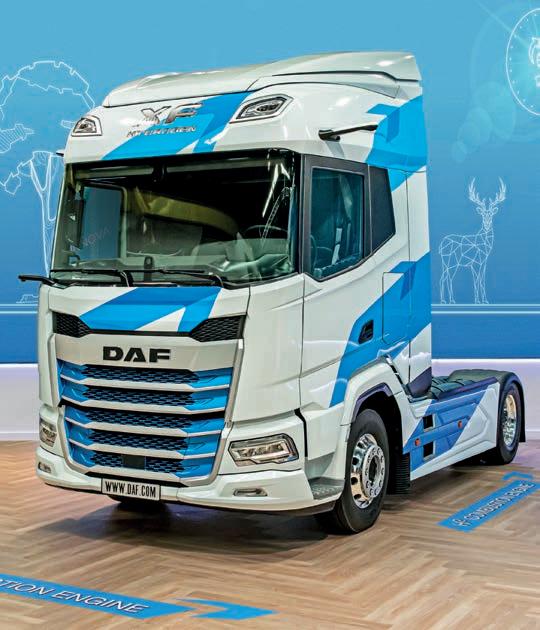
motortransport.co.uk New in 2023 14 MotorTransport 16.1.23
1 2 3





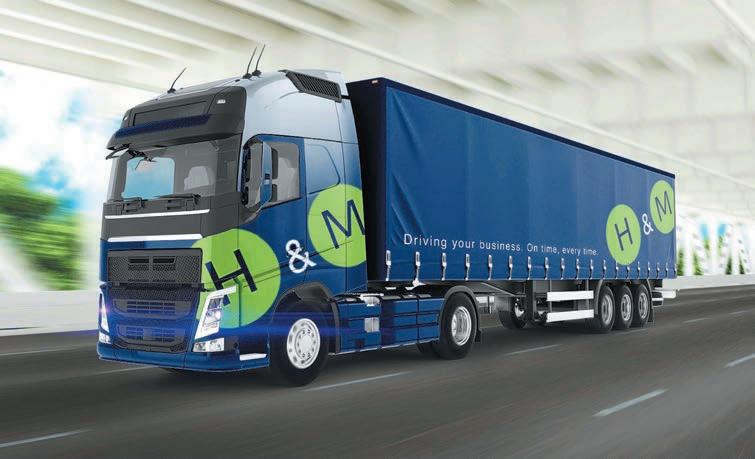


4. MAN
MAN’s eTruck BEV models won’t be seen in operator hands until 2025, but its diesel offerings continue to be improved. Available to order now for July delivery, changes to increase efficiency of the 12.4-litre D26 engine range means all ratings are increased by 10hp, with an extra 50Nm of torque, promising better economy and performance. TGL and TGM models with the D08 engine will get a new ZF PowerMatic transmission with six or eight ratios.
5. Renault
Keen to consolidate its ambition to be the number one provider of electric trucks, Renault Trucks will be completing its BEV range with the arrival of its E-Tech T and C heavy-duty models towards the end of the year. Precise technical specifications are not available yet, but we do know that its appearance will be changed, starting with a new diamond logo on a colour-coded grille panel mounted 115mm further forward for improved safety.
Scania (no image)
Scania isn’t yet able to reveal any new product plans that it may have for 2023, but is consolidating its various BEV and hybrid models, as well as its Super drivelines, which are now beginning to appear on UK roads in numbers.
6. Tevva
Tevva’s long-awaited vehicles are set to appear shortly. Final customer trials of its 7.5-tonne Battery Electric truck


should now be under way, with volume deliveries of series production vehicles starting in February. The first production deliveries of the 7.5-tonne H2 rangeextended hybrid model are due to begin in the last quarter of the year.
7. Volta
After what seems an extended development period to get it right first time, Volta is also now poised to enter the market. The first product to go on sale, the 16-tonne version, is expected to be seen in May.

8.
Volvo
And finally to Volvo. With customer deliveries of its electric range already under way, 2023 will see the arrival of additional BEV variants. These will include the FMX 8x4 Tridem, and heavy-duty FM and FH rigids, in 19-tonne 4x2 and 27-tonne 6x2 tag versions. The FM and FH 6x2 tag tractors will also arrive, although their considerable length will limit their suitability for some mainstream operations.
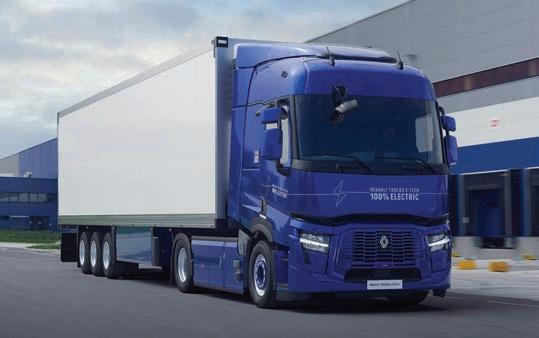
Although Volvo’s current turbo-compound diesel engines are producing record-breaking fuel figures, its ICE development doesn’t stop there. During the first half of the year, we expect to see a major update known as Fuel Face. This will include significant internal changes to the 13-litre engine, with further enhanced software and aerodynamics to improve the overall vehicle efficiency still further. ■
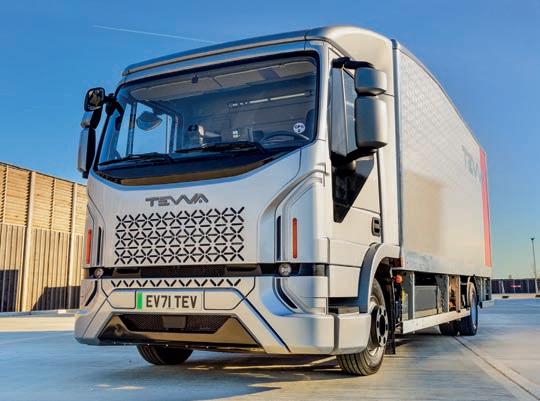
motortransport.co.uk New in 2023 16 MotorTransport 16.1.23
4 6 5 7 8














MT Awards 2022 winner profile

Innovation Award Clear winner
Necessity can often breed innovation and for DFDS Cold Chain England that is most certainly the case. The business responded to the challenges of Brexit and Covid-19 with a digital system to integrate its operations with customers and the customs authorities.
DFDS CCE’s winning entry said: “Covid-19 coincided with Brexit, ending almost 50 years of relatively hasslefree trade with the EU. A driver shortage in 2021 further complicated the situation. At DFDS Cold Chain England, we rose to these challenges with skill, determination and, crucially, innovation.”
To assist clients and allow them to navigate the complexities of post-Brexit trading between the UK and the EU, a Custom Clearance and Freight Forwarding operation was set up in Dover. The service was initially paper based but DFDS went on to develop a digital system that could integrate with customers’ operations and border authorities.
The resulting custom clearance system has become sector-leading when it comes to helping navigate the complexities of post-Brexit trading between the UK and the EU, and it has been extended for free to more than 100 importers/exporters. As a result, DFDS CCE emerged from Brexit with a record 10-fold increase in customer numbers and a 23-fold rise in staff at its Custom Clearance and Freight Forwarding operations.
Brexit challenge
After decades of being in the EU single market, Brexit heralded a fundamental transformation of procedures for moving goods to and from Europe. Customs clear-
WHAT THE JUDGES SAID
Our judges described DFDS CCE’s winning submission as “a strong entry, showing a reactive IT solution to a changing and shifting situation”.
“I love the metrics – these are impressive,” commented one judge, noting that the vast volumes and speed of delivery were particularly remarkable.
“DFDS had the foresight to introduce this solution to aid the speed and add clarity to this process, which must be applauded. All companies needed to adapt and flex to the challenges brought about by Brexit and living with Covid.
“It’s great to see how DFDS has done this and how it worked to overcome those challenges. Moving to a digital operation will always provide benefits to all parties,” they added.
“This is a clever and pragmatic development implemented in real time to address the post-Brexit chaos – well done!” one judge concluded.
ance was needed and there was a whole new raft of laws.
In response, in late 2019, DFDS CCE set up a small freight forwarding and custom clearance operation in Dover to prepare the groundwork. At that time, it was not clear whether there was going to be a no-deal Brexit or if a last-minute agreement would be hammered out.
As it was, an agreement was finally reached on Christmas Eve 2020 and came into effect in January 2021, with a year-long transition. Drawing on the knowledge of two senior DFDS professionals who had experience of pre-Common Market trade with Europe, the company created an AEO-certified (Authorised Economic Operator) customs clearance system to enable customers to have the necessary import and export declarations.
This started off as a paper-based operation, but it soon became clear this was untenable because of the sheer volume of paper records to be kept and stored, and the necessity for home working because of Covid restrictions. Over the course of 2021 DFDS CCE developed a digital system and set about bringing customers on board.
This involved:
n Developing connections so that the internal DFDS Velocity system could integrate fully with those of its customers;
n Creating an online portal into which customers could upload key information about their imports or exports;
n Developing an automated notification system to inform customers when custom clearance had been obtained and provide them with the relevant declaration.
Scaling up
During the first year of operation the system adapted well, greatly exceeding expectations. To facilitate the transition from paper to digital, DFDS CCE conducted in-depth training of its team and customers in August 2021.
In November it had to scale up the operation after acquiring HSF, a leading Dutch meat transporter. This presented new challenges, especially as the exemption by which custom clearance documents could be submitted with a delay of up to six months after the goods had been transported was coming to an end.
The new digital platform for handling custom clearance was so successful DFDS CCE on-boarded a total of 135 HSF customers in the UK and Europe, many of whom were using DFDS services for the first time.
18 MotorTransport 16.1.23
DFDS Cold Chain England took a pragmatic approach to the increased complexity of post-Brexit custom clearance, developing a system that is working well for customers and has helped the business to grow
Sponsored by
To help manage the large amount of work associated with the HSF acquisition, DFDS CCE established a dedicated 10-strong team and a new online platform called Blizzard, which was fully integrated into HSF’s Polaris system. Project Blizzard identified 12 individual workstreams, one of which related to Brexit and custom clearance.
A team made up of members from both organisations was put together and a phased approach was agreed with the first priority – and biggest potential win – identified as the flow between HSF’s headquarters in Nijmegen and the UK. A solution based on two control towers, one in Dover and one in The Netherlands, was proposed and implemented.
A delay in receiving regulatory approval meant integration coincided with the next phase of Brexit on January 1 2022, when customs declarations had to be submitted in real time with no delay allowed. By December 31 2021, DFDS CCE was fully operational, having completed the necessary staff recruitment and training and moved to a 24/7 operation in Dover.
Successful partnership
In a further development, the team created an IPAFFS (Import of products, animals, food and feed system) registration platform for shipments of agricultural products and foodstuffs with the appropriate health certificates.
One of DFDS CCE’s largest customers is the frozen food company Birds Eye (part of Nomad), which accounts

for almost a quarter of its custom declarations. Tom Crossland, distribution and supply chain projects manager at Birds Eye, said: “DFDS Customs has been a great support and asset in the course of 2021 by initially putting in place a great ad hoc solution for customs, which in turn has turned into a long-term partnership and given the Nomad business a simplistic and seamless customer operation.
“The partnership over the course of 2021 has grown well operationally and as we move into 2022, I am keen to work with the wider team in DFDS on strategic elements of customs as we form an ever-closer working relationship.
“I need to stress without them I can’t see our operation running as smoothly as it has.”
After collecting the award, Terry Broadhead, head of customs at DFDS Cold Chain England, said: “Winning this award is all down to teamwork. It’s the combination of a lot of people’s efforts.”

Key
achievements:
n Number of customers up 960% from 78 to 823; n Custom declarations team up 23-fold from two in 2020 to 46; n Customs declarations up 192% from 4,507 in the first quarter of 2021 to 13,182 in the first quarter of 2022; n DFDS Cold Chain sales up 13% from £58.4m in 2020 to £65.8m in 2021;
n Printing down 1,066% as the number of pages printed per declaration reduced from 14 to just 1.2 – and in many cases zero. n
MotorTransport 19 16.1.23
TOASTING SUCCESS: DPDS CCE head of customs Terry Broadhead holds on to the silverware as his team celebrate their win
MT Awards 2022 winner profile
Livery of the Year Sustainable vision
McCulla (Ireland) is one of the UK and Ireland’s leading temperature-controlled storage and distribution companies, serving the UK, all of Ireland and the rest of continental Europe.
Its stylish fleet beat off strong competition earlier this year to win the much-coveted Livery of the Year title at the annual Motor Transport Awards.

The business has diversified significantly from standard refrigerated haulage into a fully integrated cold chain, including storage and bespoke logistics solutions for customers of all sizes.

Services include product collection, storage, pickingto-order and delivery by the box, pallet, or full load to anywhere in continental Europe.
In 2021, a brand-new sustainable transport service was launched for customers, which uses a unique circular economy waste-to-energy model.
It sees McCulla collecting food waste from customers and using its own anaerobic digester plant to turn the waste into electricity and biomethane.
This is then used to power McCulla’s entire cold store operation, as well as fuel its growing fleet of gas-powered
SPECIAL LIVERIES
As well as the new livery for the Sustainable Transport fleet, McCulla sometimes deviates from the main vehicle livery to mark special occasions or launch new services. These include:
n In response to Brexit, the business launched an in-house customs division to support customers moving goods across the Irish sea;
n In 2019, McCulla celebrated its 50th anniversary and as part of the celebrations arranged a bespoke gold truck and trailer livery to act as a flagship in the fleet (below, left);
Iveco Stralis NP trucks (16 are already on the road, with 15 more on order).
Getting the message out
To support the launch of this important new division, McCulla had a special livery designed to promote the circular economy and ‘powered by food waste’ message.
It wanted the livery to be clean and impactful, yet still stay close to its well-established traditional design to ensure consistency of branding.
Indeed, McCulla’s main branding can be seen across everything from its truck fleet and uniforms – worn by both customer-facing and back office staff – to social media, literature and advertising.
Based on this, the company needed to be strategic with its design, as it had been in the past with other one-off liveries (see box).
A consistent feature running across all McCulla’s liveries is the positioning of the firm’s logo, with variations only being made to the slogan and wording used.
Even when introducing a green colour to promote the sustainability features of the new division, the McCulla blue and red logo stood fast.
n During the Covid-19 pandemic, McCulla had a special livery designed to thank the NHS and other key workers, including its own ‘HGV heroes’ with the addition of the strapline “keeping essential supply chains moving”;
n McCulla has a line-up of vintage trucks – one for each decade in business;
n Co-branded trailer liveries are also undertaken in partnership with McCulla’s customers, for example if they have a particular campaign to promote (below, right).

20 MotorTransport 16.1.23
Incorporating an important new message into well-established branding was a challenge McCulla (Ireland) rose to with gusto
Sponsored by
CLEARLY DELIVERED:
The sustainable transport branding needed to be clean and impactful, yet still recognisable as part of McCulla (Ireland)
McCulla said the trailer livery was a pivotal piece in the wider branding exercise for the sustainable transport launch, with everything else following from it.
The company engaged its marketing partner, Genie Insights, to guide the senior management team through the decisions that needed to be made and to present concepts for consideration.
Clear explanation
It then explored various ways of representing the key messaging, finally settling on ‘powered by food waste’ as it felt like the clearest and simplest way of explaining the concept.
Any other terms, like ‘biofuel’, ‘bio-methane’ or similar, were thought to be too technical, not easily understood or to suggest something less ‘green’ than the product McCulla is creating.
The concept of the circular economy is complex, but the addition of a simple infographic has distilled the message into a stylish and effective reader-friendly image, which highlights the key stages in the closed loop process.
It also remains a rare model across the UK and Ireland, and MCulla hopes that using a bespoke livery to demonstrate the benefits of a circular economy may raise awareness and encourage others to follow suit.
As well as the environmental gains of running a fleet that emits 93% less carbon emissions than a diesel equivalent, through the use of its biomethane trucks, McCulla is also able to determine all energy costs for the foreseeable future.
Reputational gains from highlighting the circular economy on a ‘mobile billboard’, particularly in its local community, are another plus point, alongside attracting new customers keen to use a more sustainable transport option.
McCulla also hopes that other food retailers and manufacturers that want to improve the environmental friendliness of their supply chains will be attracted by the message on its trucks.
Brand evolution
Brand identity is very important to the organisation and McCulla has continuously built upon this over the past 53 years of operation.
The most recent main brand refresh, which came within the last five years, saw the business hiring a special-
ist in brand marketing and taking on board customer opinions to help finalise the design.
McCulla said it has created a ‘striking and modern livery for the 21st century’.
Throughout all branding updates, the original blue (and later introduction of red) has been carried forward every time, giving consistency across the generations.
The most recent livery is a more streamlined adaptation of the previous version: the McCulla globe icon, whilst still present, has been modernised, as has the text font.
Its original (blue) ‘swooshes’ have been incorporated into the globe instead of being additional elements and there is still a nod to the current business owner’s father – the late David McCulla who founded the business –with his initials on each and every cab in the fleet.
There has also been the addition of the company’s brand slogan, which McCulla said perfectly sums up its customercentric focus: “Be More. Deliver More. Expect More.”

This clean and clear livery works equally well on the company’s entire mixed fleet, which comprises around 110 trucks and 200 trailers as well as Mercedes Sprinter vans and dual-temperature rigids up to 18 tonnes complete with tail-lifts.
Collecting the MT Livery of the Year award at the glitzy Grosvenor House Hotel, MD Peter Summerton said: “It’s fantastic to win the award and to be able to clearly demonstrate the McCulla family brand message.
“The competition is ferocious, but for us to come from Northern Ireland and win in such a prestigious, competitive industry is fantastic for us.” n
WHAT THE JUDGES SAID
An industry panel of judges had some strong positives to share on the winning design:
n “The new livery enhances the CSR element, with a clear message that trucks are powered on food waste.”
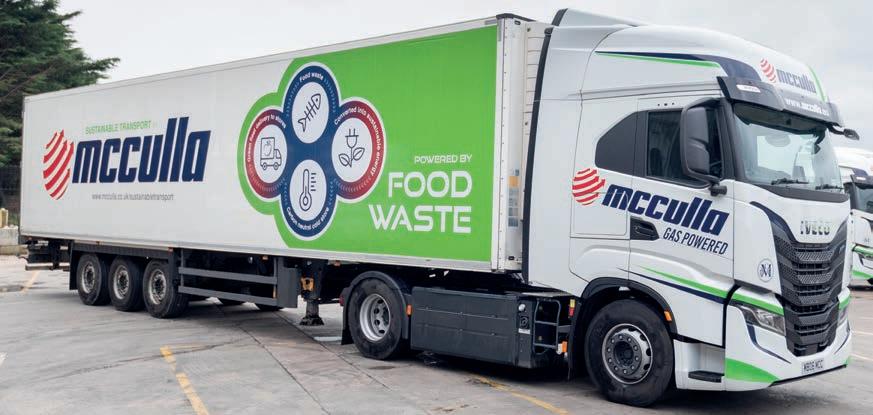
n “Love the updated link between the old and new; the livery tells a story.”
n “A real stand-out livery which showcases the brand, services offered, company ethos and green credentials.”
n “Pictures paint a thousand words and this livery sparks interest and prompted me to investigate further. The livery is modern in appearance and fulfils the criteria to attract attention and tell the viewer what you are doing.”
MotorTransport 21 16.1.23
MT Awards 2022 winner profile

Safety in Operation Award Safety always first
Industrial gases
specialist
Air Products is always looking for new ways to cut out the possibility of accidents
Air Products is a global business that manufactures and supplies industrial gases that touch every aspect of modern life – from medical oxygen to food, automotive, welding, wastewater, agriculture, and fizzy drinks.
Its goal is to be the safest industrial gas company, with a target of zero incidents and a philosophy that all accidents are preventable.
Its fleet of 353 drivers and 278 vehicles is responsible for making approximately 220,000 deliveries to 10,000 UK customers each year, ranging from large industrial facilities to small leisure environments.
To reach its zero-incident target, Air Products is always looking for new ways to reduce risk and prevent accidents from happening.
Clear focus
Since 2021, the company’s fleet strategy has aimed to demonstrate its continued commitment to being an industry leader in safety by: keeping employees and stakeholders safe; focusing on risk assessment and identifying improvement opportunities through feedback; and improving its safety refresher training – being proactive with messaging and reminding drivers “little and often” of the need to assess risk.
managers to address concerns swiftly and prevent incidents.
Air Products recognised that its previous method of managing feedback didn’t keep drivers in the loop when an issue was acted upon by management and was simply a one-way system with no central co-ordination.
Introducing DORA
To overcome this and ensure a proactive approach to risk assessment and near-miss reporting, the business introduced Driver Observation Reporting Automation (DORA) – using a digital database that collects all issues raised by drivers through their phone apps during normal daily activities.
Once inputted, DORA automatically assigns any actions from the drivers’ feedback to the correct person or department, who can then view the information, follow a link in the notification and enter the action taken. This is then automatically conveyed back to the driver, ensuring 100% feedback is achieved.
DORA therefore ensures timely action is taken and the driver is kept informed along the way.
Engagement with the new DORA system is high: the number of driver reports raised in the first 12 months of rollout increased from 212 (2020) to 507 (2021), a significant boost of 139%.
SPOT PROBLEMS EARLY:
Drivers are encouraged to stop and phone their supervisor as soon as they think something might be unsafe
The company recognises that no two deliveries are ever the same. Drivers need to contend with changes in weather, time of day, day of week, and in many cases, last-minute alterations instigated by the customer at the delivery point.
As a result, driver feedback is extremely important to the success of the firm’s fleet safety goals, enabling
Consequently, the number of completed observation reports has also increased from 94% to 99%.
Graham Hall, European logistics manager at Air Products, says that the DORA system has helped create a strong sense of empowerment for drivers to know they can stop a job at any time they feel something is unsafe.

He says: “It’s really important that drivers know they have the ability to stop the job, pick up the phone, ring the line supervisor and have that conversation. Because they are there on the front line and we are going to listen to what they are saying.”
He adds: “But we have to keep educating them on this point, because I still have my customer superheroes out there that just want to get the job done.”
For example, Air Products regularly delivers safetycritical products to hospitals, such as oxygen tanks. “I take my hat off to those individuals with their passion and their commitment, but what I’ve got to do is say, ‘love the passion and commitment, but just make sure you do it safely and compliantly’. Because it’s that fine line.”
To complement the introduction of the DORA system, Air Products completely revamped its training approach for drivers across the business.
During an annual health and safety strategy meeting, including union reps and driver trainers, it was highlighted that the existing classroom-based slideshow education was not the most engaging method for drivers.
22 MotorTransport 16.1.23
Sponsored by
REGULAR CHECKS:
Air Products asks drivers to identify and look for hazards and to think about what could go wrong
Mark Pawsey, distribution manager for the UK and Ireland at Air Products, explains: “Drivers would say, can we stop coming into the classroom for ‘death by PowerPoint’ slides for hours of our life?”
After researching different formats, it was decided to adopt a micro-learning approach: developing a series of bite-sized safety videos with the aim of keeping engagement levels high and the experience more palatable for drivers.
“The feedback we got from the drivers [from demonstrating the videos] was just overwhelming, because it’s all about knowing your audience and getting this right,” Pawsey explains. “It was a real watershed moment for us.”
In 2021, Air Products began the rollout of its Microlearning Training Programme, which reminds drivers of the importance of completing a dynamic risk assessment before and during every task.
Five-point safety plan
It also works to reinforce the company’s five-point safety plan, namely: be aware of your surroundings; know your physical limitations; use the proper PPE; follow our procedures; and think, think, and think again.
This extensive training programme for drivers covers all aspects of their job and asks drivers to identify and look for hazards, think about what could go wrong and then take immediate action to eliminate or reduce risk.
“For me, it’s all about how we engage with our drivers. How do I stay on the shoulder of the driver when they are out on the road?” Pawsey adds.
“And this is important because it can be a dangerous job. How do we keep the driver in the moment? Everything we are working on is trying to achieve that goal.”
Drivers receive a microlearning training topic to their mobile phone every month, reminding them of the key points to look out for. Each module takes less than five minutes to complete and is interactive as well as engaging.
To make the learning more personalised and add an element of fun, each member of staff (including senior management) can create personalised avatars for their training profiles.
Videos are available in 10 European languages to date to ensure training is done in an employees’ mother tongue.
Air Products says driver feedback has been extremely positive for this new way of training – as employees much prefer being able to complete the training at a time convenient for them in their working day, rather than coming into a formal classroom environment.
In addition, the use of animation allows the company to simulate safe and unsafe conditions to ensure points are understood and show characters and situations they can relate to. Keeping the message short and precise with checkpoint questions improves knowledge retention.
Engagement with the new microlearning training is high, with 5,026 modules completed in the 12 months prior to entering the MT Awards.
In 2021, the success of the overall programme has brought an improvement in Air Products’ safety performance and helped to reduce the number of Lost Time Incidents (LTIs) by 40%, from five to three.
“And the pinnacle of this success, which we were absolutely over the moon to win, was the MT Safety in Operation award,” Pawsey says. “The award is recognition for what the team does every day.”
Hall adds: “It’s great to have external recognition from industry for the work we are doing. Now we have got to maintain this [momentum] and keep moving forward.” n
EARNED RECOGNITION
Air Products achieved DVSA Earned Recognition (ER) status in November 2021 – a logical next step following the rollout of the successful driver training and feedback strategy.
Although distribution manager for UK and Ireland Mark Pawsey was confident the firm’s fleet compliance regime was robust, it was previously difficult for everyone to have full visibility of vehicle statuses and work being undertaken.

He realised that a transition away from a traditional paper-based approach to maintenance and on to a digital system was the way forward.
The team explored different digital systems and decided on one that was the best fit for the job. From the moment the system was switched on, Air Products had full sight of its fleet compliance and maintenance records in real time, enabling it to ensure any issues found are rectified straightaway.
“Earned Recognition is an unbelievable achievement,” Pawsey tells MT “It is very much a perfect extension of what we want to achieve. While our main business is a gas company, we also need to be first and foremost a professional distribution operation.”
MotorTransport 23 16.1.23
MT Awards 2022 winner profile Service to Industry Award Family values

William Stobart was born in 1961 in Cumbria, the fourth child of Eddie and Nora Stobart. He has spent most of his working life in the haulage firm that bears the famous family name, and was voted winner of the 2022 Service to Industry Award by a panel of previous winners.
“I’ve been in it all my life right from the beginning,” he says. “Eddie Stobart has had a bit of a chequered history!”
That chequered history has seen Eddie Stobart Ltd (ESL) go from one of the UK’s best-known family haulage companies through the traumas of public listing and private equity ownership, and now back in private hands again under the ownership of Culina Group.
Contrary to popular belief, William says ESL was not founded in 1960 by his mother and father. “It was started as a limited business in 1970 by my brother Edward,” he says. “I was nine years old, so when I left school at 15 I went to work with my brother. He had five or six trucks at the time, some of them doing the haulage for my father’s business. My father, Eddie, was a sole trader agricultural contractor buying and selling fertiliser to farmers.”
“I moved to Carlisle and we steadily grew the company. I just wanted to drive a truck, so I passed my test on my 21st birthday then spent four years on the road.
“I got wagon number 12 when I passed my test, and we had 18 when I came off the road and went into the office. I took over planning and we went on from there.”
After a “slow start” the company began to grow rapidly in the late 1980s and early 1990s, but after 25 years with the family firm Stobart changed tack.
“In 2001 I left the company and joined my then brotherin-law Andrew Tinkler in a railway infrastructure business
he had started,” says Stobart. “I concentrated on that with Andrew, and it did really well. I went back in 2004 after a three-year gap which was the only time I have not worked in ESL.”
Those who know the ESL dynasty always credited William with running the company behind the scenes while Edward was the more flamboyant front man. “In the 1980s he revolutionised the company,” Stobart says. “Everybody was buying DAFs, Volvos and Scanias and he went and bought a fleet of Ford Cargos. It seemed a mad thing to do but it was actually the right thing to do.”
Edward Stobart was CEO of the family firm from 1973 to 2004 when, at the age of 50, he retired. Edward tragically died suddenly from heart problems in 2011.
Relocating operations
In 2004 Andrew Tinkler, with William, bought the company and relocated to a new site on the Stretton Green Distribution Park in Appleton near Warrington – still Stobart HQ and home to a large DC. The company still operates out of Carlisle, one of 23 UK road transport and warehousing locations now covering the UK.
“The company lost its way while I had worked with Andrew on the railway infrastructure company, so we took it back on,” says Stobart. “I went in as MD and we grew the business. In September 2007, just before the credit crunch – that is when it became a PLC.
“We did a reverse merger with Westbury Property Fund to put us on a PLC platform, which both Andrew and I didn’t really know much about so we had to learn very quickly. After the credit crunch in 2008 we changed the name to Stobart Group. Andrew became CEO and I was COO, and we got stuck into it.”
Just before the acquisition Stobart had decided to drop the red chassis and the green cab from the Stobart
At
of Autologic. When Stobart and DBAY bought the
“That was agreed three or four months before the purchase went through. I was involved in the design myself because it was time for a change,” he says. “The original livery came from Cumbria – it is a Cumbrian thing to have red chassis and green cabs.”
Since Stobart’s arrival he has taken charge of Culina Asset Management, which is based on the former ESL fleet department and now owns all the vehicle assets including 5,000 trucks for the whole group.
“We don’t run the vehicles – Asset Management purchases and disposes of all the assets, puts them into the business units and manages all the R&M,” Stobart says. “So a business unit director pays a cost per month for the truck. We can manage mileage if one business is in peak and another is in a trough – that is why every tractor unit is in the same livery now.”

24 MotorTransport 16.1.23
Culina Group CEO Thomas van Mourik said at the time of the acquisition that Stobart coming with the business to manage the group fleet was a key condition of the deal. Since coming into Culina Group, many aspects of the way Eddie Stobart was run have been adopted and Stobart’s approach and experience are seen as key business assets by the parent company.
the height of the firm’s fame in 2010 Eddie Stobart Ltd ran around 1,800 trucks, including 600 car transporters it acquired with the purchase
company in 2014 they sold Autologic (by then renamed Stobart Automotive) to British Car Auctions.
fleet.
DOING THINGS THE STOBART WAY
Eddie Stobart has been on a rollercoaster ride of public and private ownership – but William Stobart feels it has now come back home
Sponsored by
With more than 1,000 trucks on the road in their famous green and red livery, ESL is the only haulage company with the distinction of having had a fan club and featuring in a Channel 4 documentary ‘Eddie Stobart: Trucks & Trailers’, which ran between 2010 and 2014.
The show made Stobart into something of a ‘poster boy’ for the haulage industry.
Then in 2014 ESL embarked on its next round of ownership, when Stobart joined forces with Isle of Man private equity investor DBAY Capital to buy 51% of the shares in the company and take it from Stobart Group back into private ownership.
Private equity being what it is the company was floated again, this time on the AIM, in April 2017. “That is when it became Eddie Stobart Logistics PLC, and Stobart Group was still on the Stock Exchange,” he explains. “That was confusing to many people. I stepped away at that point and was no longer a director though I had a few shares.”
“In December 2019 DBAY asked me to come back and lead a management team so we took it back over. We again took 51% of the shares and left 49% in the PLC shell.”
When ESL was again taken private, DBAY used its holding company GreenWhiteStar Acquisitions (GWSA) to own Eddie Stobart Ltd and a number of acquisitions it had made while listed on the AIM. These included e-fulfilment business iForce, The Pallet Network and recruitment specialists Logistics People.
“When it came back it wasn’t just Eddie Stobart, it was a group of companies that had been good purchases by the previous management and so the parent company was GreenWhiteStar Acquisitions,” says Stobart. “I came back in here [the board room in the Appleton office] which we call the war room and have been here ever since!”
Stobart served as executive chairman of GWSA from 2019 to July 2021 until it was bought by Culina Group and he was appointed deputy group CEO by CEO Thomas van Mourik.

One part of the business that did need attention was the chilled distribution operation acquired from Innovate.
“It was just really hard work, so we scaled it back,” says Stobart. “When I came back in December 2019 we had a clear out and by March 2020 we were into lockdown. That was a new world again – we looked at the chilled and we just weren’t very good at it.
“I’d known Thomas and Glyn Davies [founder of Russell Davies and now a non-executive director of Culina Group] for many years and we got talking. We brokered a deal for Culina to take over the chilled business.”
This was in August 2020 and was the start of the process that saw Culina acquire GWSA almost a year later.
“It was Glyn and Thomas who suggested that Culina Group look at the whole business,” says Stobart. “They bought GWSA with all the group companies. For me it was fantastic. We were privately owned by a family firm again, as the Müller family own Culina Group. It was like going back home,” says Stobart. “Thomas asked me to be deputy CEO and I was more than willing to do so. It is a fantastic home and what it needed – to be out of being a PLC or institutionally owned.”
Company policy
Van Mourik has a policy of retaining the name and management team of the companies he buys but Stobart says he has no emotional attachment to the family name, and keeping it was not a factor in selling to Culina Group.
“Business is business and it was the right thing for the firm and that is all I looked at,” he says. “The sale to Culina Group was ultimately the decision of DBAY – DBAY was the owner and private equity is always looking for an exit. The exit was to the right place and while I sat on the board and had a say, ultimately they owned the business.”
Stobart says that passing his HGV test at 21 remains a highlight of his 45-year career. “It’s been a rollercoaster but I have learnt a lot,” he says. “It’s all about having that passion and attention to detail all the time.

“The sale to Culina Group was a massive milestone in my life. It can be a lonely job and to be back in a team with Thomas was a great achievement in my eyes. Then having my peers choose me for the Service to Industry award was fantastic. It was a complete shock and surprise.
“Everyone thinks because of the Stobart brand I like the limelight, but I tend to avoid it.” n
MotorTransport 25 16.1.23
Edward Stobart professionalised drivers by putting them in uniform shirts and ties, and named the trucks after individuals – usually girls and sometimes celebrities – moves that caught the public’s imagination.
SHOCKED AND STUNNED: William Stobart says it was a big surprise to be chosen for the Service to Industry Award – but fantastic at the same time
MT Awards 2022 winner profile
Urban Operator of the Year Electric avenues

Multiple awardwinner DPD has a commitment to green transport that goes beyond its phase-out of diesel vehicles –it has also set up a micro-depot network to cut mileage and is working with tyre specialist Enso to reduce air and microplastic pollution
Acentral plank of DPD’s winning entry in the Urban Operator of the Year category was its bold and industry-leading commitment to stop buying diesel vans in 2020 and invest heavily in electric vehicles.
“The green focus is totally embedded within the DPD corporate culture,” noted one of our judging panel.
This laser-like focus on reducing its impact on the urban environment has not been at the expense of customer service or profitability. DPD has doubled its turnover since 2016 and its 22,000-strong team delivers more than 400m parcels a year for 7,500 customers. 2021 was another successful year, with turnover breaking through the £2bn barrier. While DPD UK does not reveal its profits, it contributed significantly to the European group’s 2021 operating profit of more than €1bn (£870m).
DPD’s mission is to become the world’s most sustainable delivery company as it creates the UK’s largest urban all-electric delivery fleet, expands its all-electric micro urban depot network and uses technology to give a better understanding of urban air quality. The wider DPD Group has committed to being net-zero carbon by 2040, with the UK business unit expected to beat that deadline.
In 2020 DPD launched its green vision, with plans to deliver on all-electric vehicles in 25 UK towns and cities by 2025. In 2021, it extended this commitment to all-electric deliveries in 30 UK cities by the end of 2023; five more cities, two years earlier than planned.
It has already decarbonised all deliveries in Bradford, Bristol, Cardiff, Hull, Newcastle, Nottingham, Oxford, Reading, Southampton and Stoke – and has plans to add 20 more towns and cities, including London, Liverpool, Manchester and Edinburgh, to that list by the end of 2023.
By then DPD will have 5,000 all-electric vehicles on the road, which will be 40% of its entire last-mile fleet.
Intelligent network
One of the earliest depots to go all-electric, in 2019, was Westminster, when DPD created its first ‘micro-depot’, with final-mile delivery on emissions-free electric vehicles.
In 2020 it opened its Hull micro-depot and in March 2021 it added an all-electric site in Humber, operating as a satellite location for its main feeder depot in Lincoln.
The company said: “Expanding our intelligent finalmile, all-electric urban micro-depot network has contributed enormously to our emissions reduction, and with our urban depots in total we delivered an incredible 78,800kg saving of CO2 in 2021.”
The company is also working closely with councils to support zero-emission zones (ZEZs). In 2021 Oxford introduced the UK’s first ZEZ – and DPD was at the launch to give its full support. DPD had been preparing for the ZEZ for more than a year, opening its net-zero carbon construction depot in nearby Bicester in July
2021. It operates only electric vehicles in the city of Oxford, delivering more than 15,000 parcels clean and green every week.
Despite the shortage and high cost of electric vans, DPD continued to grow its all-electric delivery fleet and by the end of 2021 had more than 1,500 electric vehicles based at 84 depots across the UK. This figure was up from just 139 in January 2020. DPD has not bought a diesel last-mile vehicle since summer 2020 and does not intend to buy diesel again.
In 2021, it delivered more than 16.5 million emissionfree parcels on this electric fleet, with an annual CO2 saving of 4.6m kg. By the end of 2022 it was on track to increase this number by almost 60% to 26m parcels, a saving of 7.2m kg of CO2.
Big investments
DPD has acquired nine different types of all-electric vehicles, from cargo bikes to 7.5-tonne trucks. In 2021 it invested more than £50m with SAIC Motor to buy 750 Maxus eDeliver 9 vehicles and 500 of the smaller Maxus eDeliver 3 vans. The Maxus 3.5-tonne van can typically carry 150 parcels and travel 150 miles on one charge.
More recently it has invested £41.7m in 1,000 Ford E-Transits, which have a range of 149 miles and a capacity of 12.4cu m – the largest of DPD’s electric last-mile vehicles.
DPD is not charging its customers more for electric deliveries and, while the total cost of operation of electric vehicles can be lower than diesel over the lifetime of the vehicle, it is absorbing the higher upfront costs of buying electric vans.
“One thing that has really helped is that some excellent manufacturers – and I would call out Maxus and Ford – are producing exactly the sort of vehicle we want,” says Tim Jones, DPD group director of marketing and sustainability. “That is a 3.5-tonne van big enough to meet our operational needs. They are also producing significant quantities, which allows us to negotiate a great price and that removes some of the pain we had two or three years ago, when we were paying two or three times more than for a diesel van.”
With more than 10% of the delivery fleet all-electric, charging infrastructure has become the biggest hurdle to speeding up the roll-out of battery electric vans. For drivers who cannot charge at depots, DPD is contributing £350 to each home charger installed by its charging partner, PodPoint.
But DPD said: “Clearly not all our drivers live in areas where access to their own charging unit is possible and building a large all-electric fleet so quickly has highlighted the need for affordable and user-friendly electric vehicle charging points. To date we have invested £1.89m installing more than 250 charging points within our depot network.”
26 MotorTransport 16.1.23
POWER PLAYER: In just two years, DPD increased its all-electric fleet from 139 vehicles to 1,500
First-time delivery success drives carbon savings, as it avoids redelivery, and DPD delivered 409m parcels in 2021 with a success rate of 99.8%, including traffic delays. The company says: “At DPD we believe that being a clean urban delivery operator means much more than just buying hundreds of EVs. It also means ensuring that they are deployed in the most sustainable way possible and are fully integrated with the overall customer experience.”

The DPD app – which has been downloaded 10 million times – allows customers to choose their delivery preferences so they can still receive their parcel if they are not at home, avoiding a second delivery attempt and needless carbon emissions. In 2021 the number of deliveries through the app rose by 27.4%, improving first-time delivery success and resulting in 2 million parcels not incurring a second delivery attempt the following day. This reduced carbon emissions by 536kg.
DPD is also expanding its out-of-home delivery options with a growing network of pick-up shops – including 1,500 Post Offices – and 500 DPD lockers to give consumers even more choice and increase first-time delivery rates.
“DPD will always look to give the consumer the choices they want – that is fundamental to everything we have done,” Jones says. “Out-of-home is definitely part of the future and we want to expand our relationship with the Post Office.”
Reducing emissions in city centres also has to involve the trucks that transport parcels between the depots and five national sortation hubs. DPD has now switched most of its trunker fleet to hydrotreated vegetable oil (HVO), a low-carbon, drop-in replacement for Derv.
Sustainable sources
“One of the biggest ways to take out huge amounts of carbon is to get the transport fleet off diesel,” Jones says. “We worked for many years on different ways to do that and settled this year on a superb solution, which is HVO. This allows us to switch to a much cleaner biofuel, which is 92% less polluting than diesel.
“It is all from sustainable sources like waste vegetable oil. It ticks every box except it is more expensive than diesel – but our parent company, La Poste, agreed to make the investment to switch 60% of our transport fleet
to HVO in 2022. That is a tremendous step forward for us and we have signed supply contracts that will enable us to switch 100% of the fleet by the end of 2023. That will avoid 120,000kg of CO2 emissions.”
That means the transport fleet will cut its carbon emissions faster than the C&D fleet, which will be only 40% electrified by the end of 2023 despite the rapid roll-out of electric vans.
In another industry first, DPD is working with electric vehicle tyre innovator Enso to conduct full road trials of a new tyre designed to reduce air and microplastic pollution.
The trial is a part of TfL’s FreightLab innovation challenge, which will tackle London’s air pollution and road congestion. As tyres wear, they can emit more air pollution than tailpipes, with tyre particulate matter (PM) making up 28% of all primary ocean microplastics. Tyre pollution is an even bigger challenge for EVs, as their increased weight and torque wears tyres faster – so EVs often emit more tyre PM than standard vehicles.
Enso has developed a new tyre made from advanced raw materials that are environmentally friendly and increase EV range while reducing both air and micro plastic tyre PM pollution. n
WHAT THE JUDGES SAID
Our judges were again impressed with DPD’s winning entry, with one saying it “demonstrates the approaches taken to mitigate emissions and enhance their reputation as the leading sustainable delivery company through operation of a broad portfolio of all-electric vehicle types.
“In addition, by bringing in micro-depots fitted with battery-powered electric vehicles, the green focus is totally embedded within the DPD corporate culture.”

Another expert judge with plenty of experience in running zero-carbon vehicles said: “A very impressive entry, with a bold strategy. Strong points are that they have stopped buying diesel vans since 2020, have tackled charging at both home and the workplace and have a range of vehicles to call on (arguably too many types, but no doubt this is all about trialling various options).
“Also a bold strategy on transitioning cities to EV operations, with targets extended. The outcome of the Enso tyres trial will be interesting – to identify any compromises made to reduce particulate emissions.”
Another member of our judging panel said: “An outright winner, as far as I can see. A clear strategy, and so impressive they have stuck to buying no more diesel vehicles since 2020. I liked the urban micro-depot network with final-mile EVs.”
MotorTransport 27 16.1.23
Sponsored by


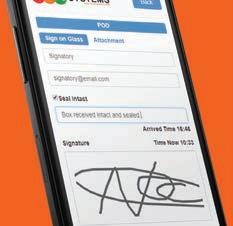






























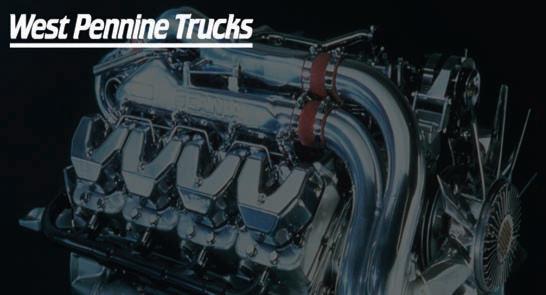

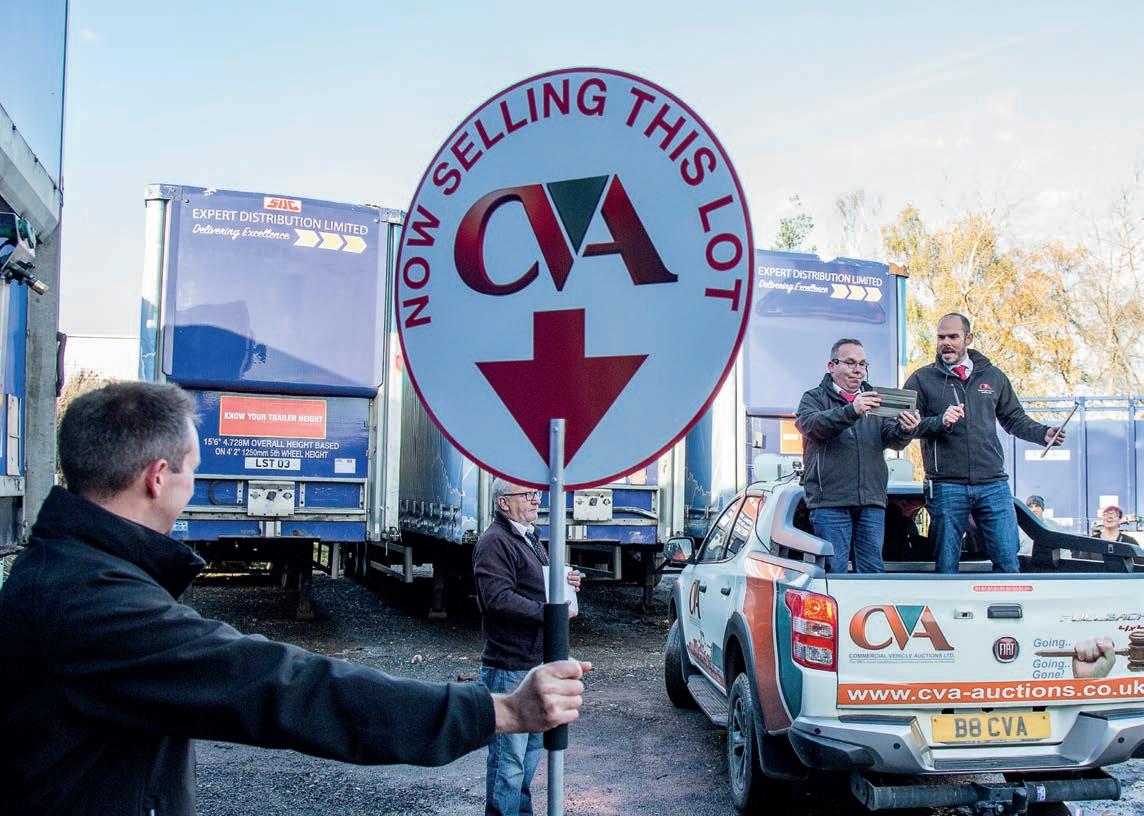
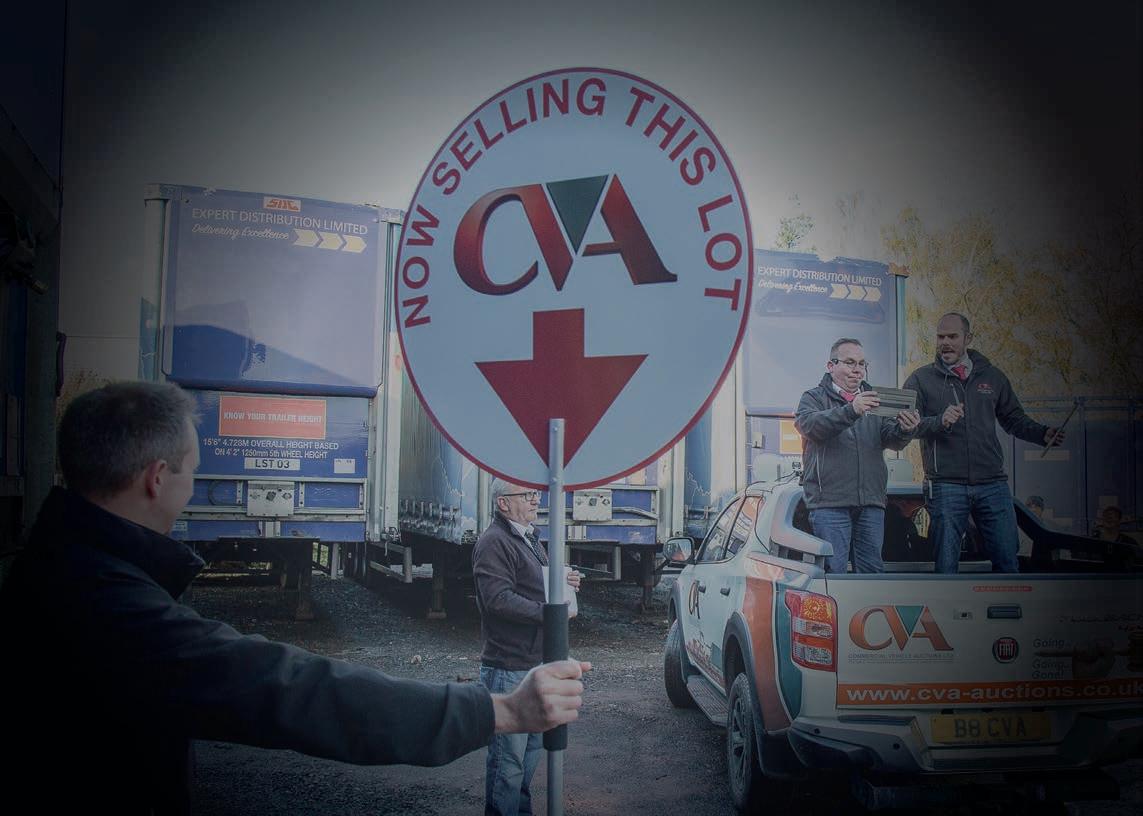



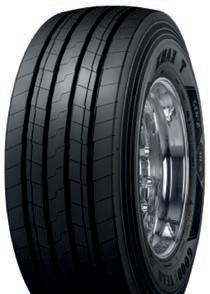
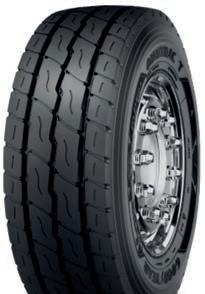
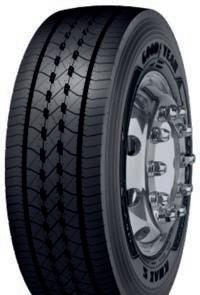



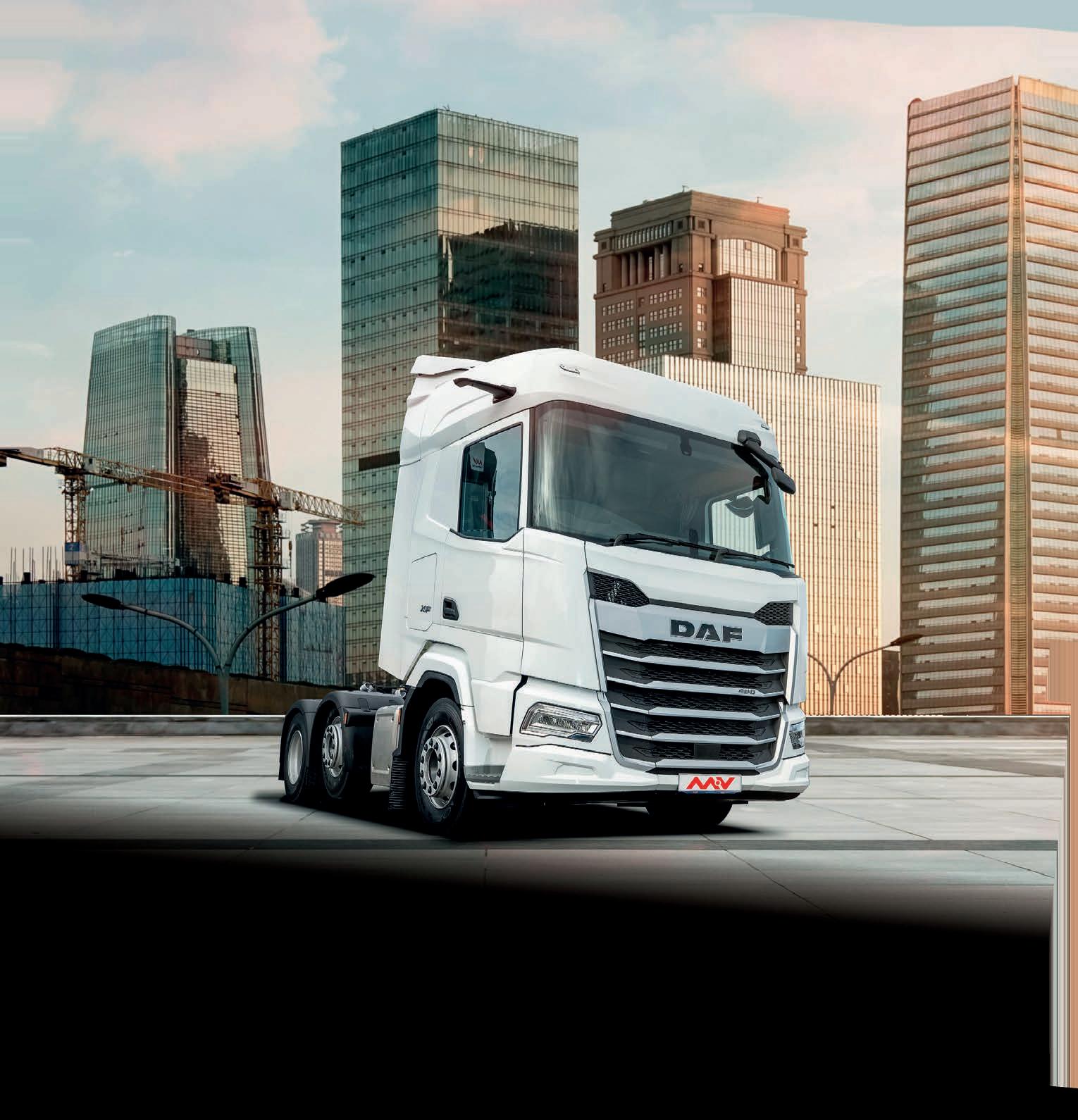












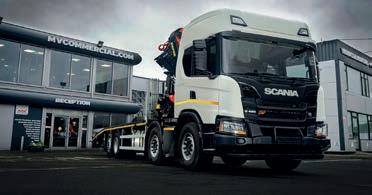
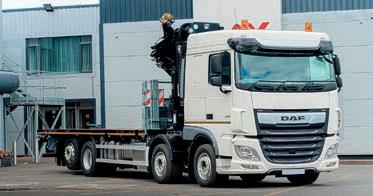
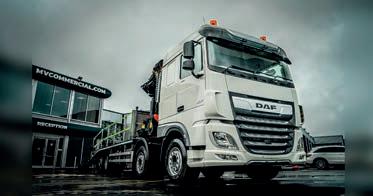


















































 By Carol Millett
By Carol Millett













 By Carol Millett
By Carol Millett



























































































































